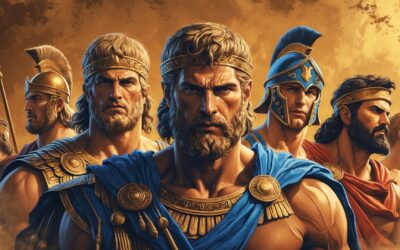Introduction
Aldous Huxley’s “Brave New World” is a captivating and thought-provoking novel that envisions a dystopian future where technological advancements and state control have replaced individuality, freedom, and human connection. Published in 1932, the book remains a literary classic and a profound warning about the dangers of a society shaped by scientific progress and the erosion of personal autonomy. This comprehensive article delves into Huxley’s life, the themes and motifs of “Brave New World,” its impact on literature and popular culture, and its enduring relevance in the 21st century.
Aldous Huxley: Life and Influences
Aldous Leonard Huxley was born on July 26, 1894, in Godalming, Surrey, England, to a family of well-known intellectuals. His grandfather, T.H. Huxley, was a famous biologist and supporter of Charles Darwin’s theory of evolution, while his mother, Julia Arnold, was a renowned writer and educator. Huxley’s family environment nurtured his curiosity and love for learning, which he carried with him throughout his life.
In 1913, Huxley began his studies at Balliol College, Oxford, where he pursued English literature. It was during this time that he started to develop his writing style, influenced by the works of Fyodor Dostoevsky, H.G. Wells, and Thomas Hardy. After serving briefly in World War I, Huxley began a successful career as a writer and journalist, publishing a variety of essays, short stories, and novels.
Huxley’s experiences and observations during the early 20th century provided the foundation for “Brave New World.” He witnessed the rise of totalitarian regimes, the rapid development of science and technology, and the increasing secularization of society. These events shaped his outlook on the potential dangers of unchecked progress and inspired him to craft his dystopian masterpiece.
Summary of Brave New World
“Brave New World” is set in the year 632 A.F. (After Ford), a time when the world is ruled by the World State, a totalitarian government that seeks to control every aspect of human life. The novel primarily takes place in London, where the government uses advanced technology and psychological manipulation to maintain stability and happiness among the population.
At the center of the story is Bernard Marx, an Alpha-Plus citizen who feels out of place in the World State due to his physical and intellectual differences. Through his interactions with Lenina Crowne, a woman conditioned to embrace the World State’s hedonistic values, and John the Savage, a man born and raised in the “Savage Reservation” outside of the World State’s control, the novel explores the nature of happiness, freedom, and what it means to be human.
Themes and Motifs
a. The Danger of Totalitarianism and State Control
“Brave New World” presents a chilling vision of a society where the government exercises complete control over its citizens. Huxley portrays the World State as a totalitarian regime that manipulates the masses through psychological conditioning, drug use, and constant surveillance. The novel serves as a warning against the dangers of relinquishing individual autonomy and freedom in exchange for stability and happiness. This theme was influenced by Huxley’s own experiences witnessing the rise of totalitarian regimes in the 20th century, including Fascist Italy and Nazi Germany.
b. Technological Advancements and Dehumanization
Huxley’s novel demonstrates how technology can be both a blessing and a curse. While it has provided the citizens of the World State with comfort, convenience, and safety, it has also robbed them of their humanity. People are mass-produced in laboratories, stripped of their biological relationships, and conditioned to behave according to the state’s desires. Emotions, creativity, and critical thinking are suppressed, as they are seen as threats to social stability.
c. Loss of Individuality and Identity
In the World State, individuals are discouraged from developing a unique identity, as conformity is prioritized to maintain social harmony. Citizens are divided into castes based on their predetermined roles and are conditioned to be content with their position in society. The lack of individuality is further reinforced through the use of drugs, such as soma, which numbs emotions and keeps citizens docile and compliant.
d. Consumerism and Hedonism
“Brave New World” offers a scathing critique of the consumerist values that had begun to take root in Western society during Huxley’s time. The World State promotes a culture of consumption and hedonism, as citizens are encouraged to seek pleasure through material possessions, sex, and drugs. By keeping citizens preoccupied with their own gratification, the government ensures that they remain unaware of their lack of freedom and agency.
e. Religion and Spirituality
In the World State, religion has been replaced with a reverence for technology and the pursuit of pleasure. Traditional religious beliefs are seen as a threat to the state’s control, as they encourage individuality and offer alternative sources of meaning and fulfillment. However, through the character of John the Savage, Huxley suggests that the human spirit longs for a deeper connection with something greater than itself and that a life without spirituality is ultimately unfulfilling.
Literary Devices and Writing Style
Huxley’s writing style in “Brave New World” is characterized by his use of irony, satire, and allusions to literature, religion, and history. He employs these devices to critique the values and trends of his own time, as well as to imagine the potential consequences of unchecked scientific and technological progress.
Throughout the novel, Huxley makes numerous references to Shakespeare, particularly in the character of John the Savage, who finds solace in the works of the great playwright. These allusions serve to contrast the richness of Shakespeare’s language and ideas with the sterile, utilitarian language and values of the World State.
Reception and Impact
Upon its publication, “Brave New World” received mixed reviews, with some critics praising Huxley’s imaginative vision and biting social commentary, while others found the novel’s themes and subject matter disturbing. Over time, however, the novel has come to be regarded as a classic of dystopian literature and a prescient warning about the potential dangers of unchecked technological progress and societal control.
Adaptations and Influences on Popular Culture
“Brave New World” has been adapted for the stage, radio, and screen on several occasions, including a 1980 TV film, a 1998 TV film, and a 2020 TV series. The novel has also inspired a number of other literary works, films, and television shows that explore similar themes, such as “The Handmaid’s Tale,” “1984,” and “Fahrenheit 451.”
Comparisons to Other Dystopian Novels
Brave New World” is often compared to other seminal works of dystopian literature, such as George Orwell’s “1984” and Ray Bradbury’s “Fahrenheit 451. While all three novels depict oppressive societies in which individual freedom is sacrificed for the sake of order and stability, “Brave New World” stands apart in its portrayal of a society that maintains control not through fear and coercion, but through pleasure and complacency. In contrast to the grim, totalitarian landscapes of “1984” and “Fahrenheit 451,” Huxley’s vision of the future is one in which citizens willingly submit to the state’s authority in exchange for superficial happiness and the illusion of freedom.
Brave New World’s Relevance Today
Nearly a century after its publication, “Brave New World” remains relevant and thought-provoking, as many of its themes continue to resonate in contemporary society. The novel’s exploration of the potential dangers of technological progress and state control serves as a cautionary tale, reminding us of the importance of preserving our individuality, freedom, and humanity.
The rise of surveillance technology, social media, and consumerism in the 21st century has further amplified the novel’s significance, as we grapple with questions about privacy, identity, and the role of technology in our lives. Huxley’s novel invites readers to reflect on the delicate balance between the benefits and drawbacks of technological advancements and to consider the importance of cultivating a meaningful, authentic existence in an increasingly interconnected and rapidly changing world.
Conclusion
Aldous Huxley’s “Brave New World” is a timeless literary classic that explores the potential consequences of unchecked scientific progress and the erosion of individual freedom. Through its richly imagined dystopian setting, vivid characters, and thought-provoking themes, the novel challenges readers to confront the ethical and philosophical dilemmas that arise in a world shaped by technology and state control.
By examining the novel’s enduring impact on literature and popular culture, as well as its continued relevance in contemporary society, this article highlights the importance of “Brave New World” as a cautionary tale and a powerful reflection on the human condition. As we continue to navigate the complexities of the modern world, Huxley’s masterpiece remains a vital and compelling reminder of the need to preserve our humanity, freedom, and individuality in the face of ever-evolving challenges and uncertainties.
Keywords
- Brave New World: A novel written by Aldous Huxley and published in 1932 that portrays a dystopian future where individuality, freedom, and human connection have been replaced by technological advancements and state control.
- Technological progress: The advancement of technology and scientific knowledge over time, often leading to the development of new products, tools, and systems that enhance human life but also bring new challenges and risks.
- State control: The government’s authority to regulate and influence the behavior and actions of individuals and society as a whole, often through laws, policies, and enforcement mechanisms.
- Dystopian literature: A genre of fiction that portrays a dark and oppressive society where individuals suffer from dehumanization, oppression, and loss of personal autonomy, often caused by oppressive governments or societal systems.
- Totalitarianism: A form of government where the state exercises complete control over all aspects of society, often through the use of propaganda, censorship, and violence, and where individual freedom and autonomy are severely restricted.
- Individuality: The quality or character of being unique, distinct, and separate from others, often expressed through one’s personality, beliefs, and values.
- Freedom: The state of being free from external control or interference and able to make one’s own choices and decisions based on one’s personal values and beliefs.
- Consumerism: A cultural and social phenomenon where individuals prioritize the consumption of goods and services as a means of achieving happiness, status, and fulfillment.
- Hedonism: A philosophical and ethical view that prioritizes pleasure and sensual gratification as the ultimate goal of life.
- Surveillance technology: A range of tools and systems used for monitoring and collecting information about individuals and society, often used by governments and corporations for various purposes, such as law enforcement, marketing, and intelligence gathering.
Key Takeaways
- “Brave New World” is a dystopian novel written by Aldous Huxley that warns against the dangers of technological progress and state control.
- Huxley’s life experiences and observations during the early 20th century provided the foundation for the novel.
- The novel explores themes such as the dangers of totalitarianism and state control, technological advancements and dehumanization, loss of individuality and identity, consumerism and hedonism, and religion and spirituality.
- Huxley’s writing style in “Brave New World” is characterized by his use of irony, satire, and allusions to literature, religion, and history.
- “Brave New World” has received mixed reviews upon its publication, but has become a classic of dystopian literature and has had a significant impact on popular culture.
- The novel has been adapted for stage, radio, and screen on several occasions, and has inspired a number of other literary works, films, and television shows that explore similar themes.
- “Brave New World” is often compared to other seminal works of dystopian literature, such as George Orwell’s “1984” and Ray Bradbury’s “Fahrenheit 451.”
- The novel remains relevant and thought-provoking in contemporary society, particularly in relation to the rise of surveillance technology, social media, and consumerism.
- “Brave New World” is a cautionary tale that reminds us of the importance of preserving our individuality, freedom, and humanity in a world shaped by technology and state control.
- Overall, Huxley’s masterpiece challenges readers to confront the ethical and philosophical dilemmas that arise in a world shaped by technological progress and state control.










0 Comments